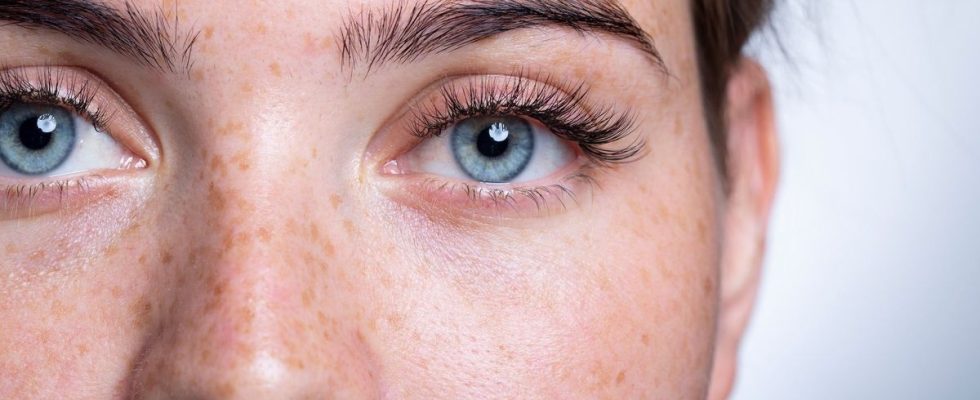Published on
Updated
Reading 2 min.
We would not all be equal in the night. A particular eye color may fare much better than others in dim light, according to a new study. Guess which one.
Unlike animals known as nyctalopes, humans see poorly at night (witness that toe you hit on the foot of the bed). But this is not entirely true: night vision actually depends on the color of your eyes.
Blue eyes adapt better to dim light
A new study conducted by John Moores University in the United Kingdom recently looked at the abilities of eyes depending on their color. Researchers Kyoko Yamaguchi and Faith Erin Cain compared 40 volunteers with blue and brown eyes by subjecting them to a simple eye test. They were plunged into darkness for 30 seconds, then the lighting was gradually increased until the participants could distinguish a series of letters on a wall located three meters away. And the difference became clear:
As a result, those with blue eyes needed a lighting level of 0.7 lux on average (lux is the unit for measuring lighting intensity), while brown eyes needed more intense lighting of on average 0.82 lux and more.
“Blue-eyed individuals had a better ability to see in low light conditions than brown-eyed individuals, suggesting that depigmented irises provide an adaptive advantage“, write the scientists.
Is this the reason for light eyes in Nordic countries?
For researchers, these small-scale results could potentially help explain why blue eyes are more particularly present in populations from Northern Europe. Until now, blue eyes, the majority in this geographical area, were recognized as an adaptation to poor sunlight, and a lack of vitamin D. But the reason could be biological: light eyes which adapt better to darkness. could be the result of a “increased stray light in depigmented irises” in order to see more in the dark.
However, additional research is needed to establish with certainty that this better night vision finds its origin in the pigmentation of the iris.
